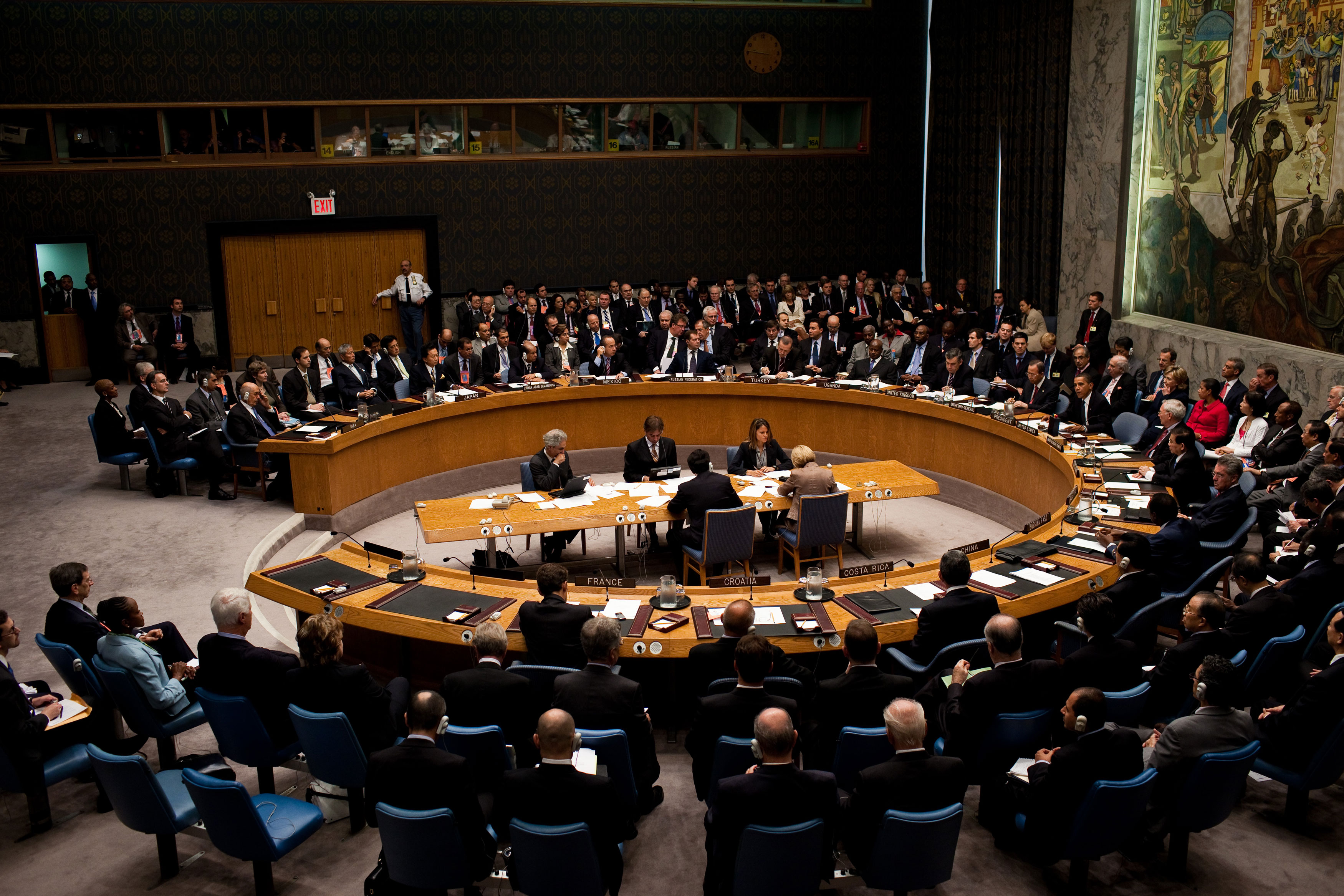 Credit to the White House: http://www.flickr.com/photos/whitehouse/3993800049/in
Credit to the White House: http://www.flickr.com/photos/whitehouse/3993800049/in
To Check Iran’s Regional Activities: Recertify the Deal
On September 4th the U.S. Ambassador to the U.N. Nicki Haley announced that President Trump will chair a U.N. Security Council meeting on Iran’s violations of international law at the U.N. General Assembly later this month. “He is calling the meeting to address Iran’s violations of international law,” Haley said at a press conference. “We continue to see Iran engage in activities that are not helpful whether it’s in Lebanon, Yemen or Syria.”
The meeting is expected to agitate not just the United States’ typical adversaries on the Security Council like China and Russia, but also its traditional allies like France and Britain who were angered by Trump’s decision to pull out of the Iran deal last May. The other members of the Security Council have argued that the deal was working at accomplishing its main goal: preventing Iran from obtaining a nuclear weapon. Their claims are substantiated by the IAEA report from August which stated that Iran was in compliance with the deal.
The gap between the United States and the other members of the Security Council originates from the differing interpretations over what the objective of the Iran deal should have been, namely whether the deal should have focused solely on the nuclear issue, or whether it should have also addressed Iran’s other activities in the region. When pulling out of the deal last May Trump said, “The deal does nothing to constrain Iran’s destabilizing activities, including its support for terrorism. Since the agreement, Iran’s bloody ambitions have grown only more brazen.”
The deal however was never intended to address Iran’s malign activities in the region since its inclusion would have derailed the talks and sent Iran down a path towards a nuclear weapon. As former U.K. Foreign Minister Boris Johnson argued in a NY Times op-ed last May:
“Far better to police the deal with the greatest rigor — and the I.A.E.A. has certified Iran’s compliance so far — while working together to counter Tehran’s belligerent behavior in the region. What has been gained from the nuclear deal? Imagine all the mutually contaminating civil wars and internecine conflicts that rage across the Middle East today. Then turn the dial and add the possibility of a regional nuclear arms race triggered by Iran dashing for a bomb. That is the scenario which the agreement has helped to prevent.”
It is undoubtable that Iran’s actions have had an adverse effect on regional stability in the Middle East and Central Asia and should be countered by the U.S. and its allies. However, those activities can be effectively countered while staying within the framework of the deal. Staying in the deal will not only incentivize Iran to abide by its provisions, but it will also allow the U.S. to regain the political capital which it squandered when it refused to certify the Iran deal last May. The U.S. will then be able to build the international consensus necessary for the multilateral action needed to effectively counter Iran in places like Syria and Yemen.
To conclude, when President Trump rails against Iran’s actions at the Security Council meeting, his concerns will largely fall on deaf ears as his refusal to certify the Iran deal has alienated the other members of the Security Council. To compel these other nations to address Iran’s malign activities, and ensure that Iran never obtains a nuclear weapon, the Trump Administration should change course and recertify the Iran deal.





